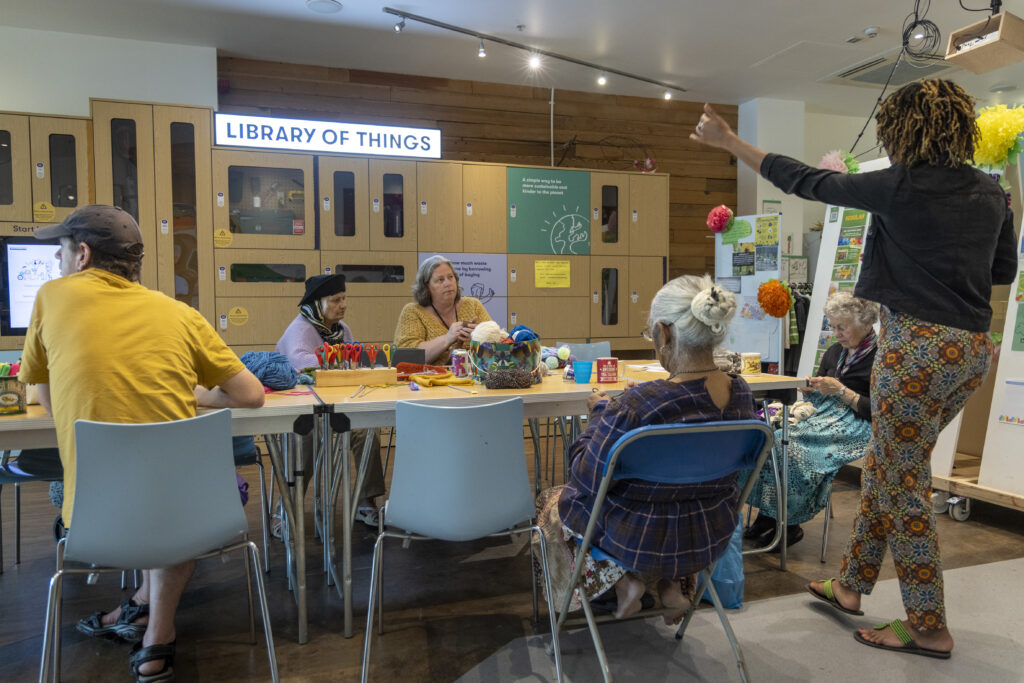
Sustainable Towns and Cities
A guide for UK councils:
Delivering climate action with community partners
Explore

What is in this briefing?
This guide is essential reading for anyone working in a UK local authority looking to engage and build partnerships with communities to inspire collective action.
It includes practical tips and guidance on:
- How to identify and involve community partners
- How to build trust and collaboration
- How to develop and implement community-led projects
Use the menu to the left to jump to the resources and information you need.
Why work with community groups?
2022 brought record temperatures to UK, as well as flooding and other extreme weather linked to climate change. With stretched budgets, local authorities are grappling to protect residents from these dramatic events and move towards a zero-carbon future. This means more than cutting carbon – councils have to engage all residents in the challenge ahead.
Community organisations are already taking action on climate change, with benefits ranging from better mental health to action on fuel poverty, as well as lower emissions. Trailblazers include 250 repair cafes cutting waste, 498 projects generating clean energy, and over 7,000 friends of parks groups creating new and improved green spaces. But research shows councils are not always working with these pioneers on their own climate plans.
Local authority climate mitigation and adaptation plans must be designed with local people if they are to protect communities and help them thrive. It is vital that councils engage communities most vulnerable to climate-related dangers – such as fuel poverty, heat-stress, and toxic air pollution.
However we know traditional delivery methods are not working. According to the Independent Review of Net-zero issues such as cost, accessibility to low carbon technology and a lack of information about the appropriate action to take are preventing the public from engaging on climate action. Without a different approach, such barriers may mean that vulnerable communities could miss out on the benefits that climate action delivers.
Knowledge, trust and wider engagement
Grassroots groups are a unique and powerful tool for delivering net zero ambitions, for three key reasons.
First, they carry powerful local knowledge and lived experience of key social and environmental issues. Policies co-developed and implemented with them are more likely to meet residents’ priorities.
Related to this is the issue of trust. Local groups are trusted more by the public than bodies such as councils and central government, so are well-placed to reassure communities over significant changes, such as implementing energy efficiency measures in homes. Community organisations understand local complexities that may affect how council approaches are viewed.
Finally, they are often well connected to vulnerable or marginalised groups. Under-represented communities are least likely to benefit from the additional value that climate action offers, and so working with community groups enables a greater accessibility of council services within forgotten communities.
In turn, this maximises the value of council initiatives. The Local Trust reports that £1m investment in community-led social infrastructure in a ‘left behind’ region could leverage £2m of social and economic benefits.
Case studies: inspiring community initiatives
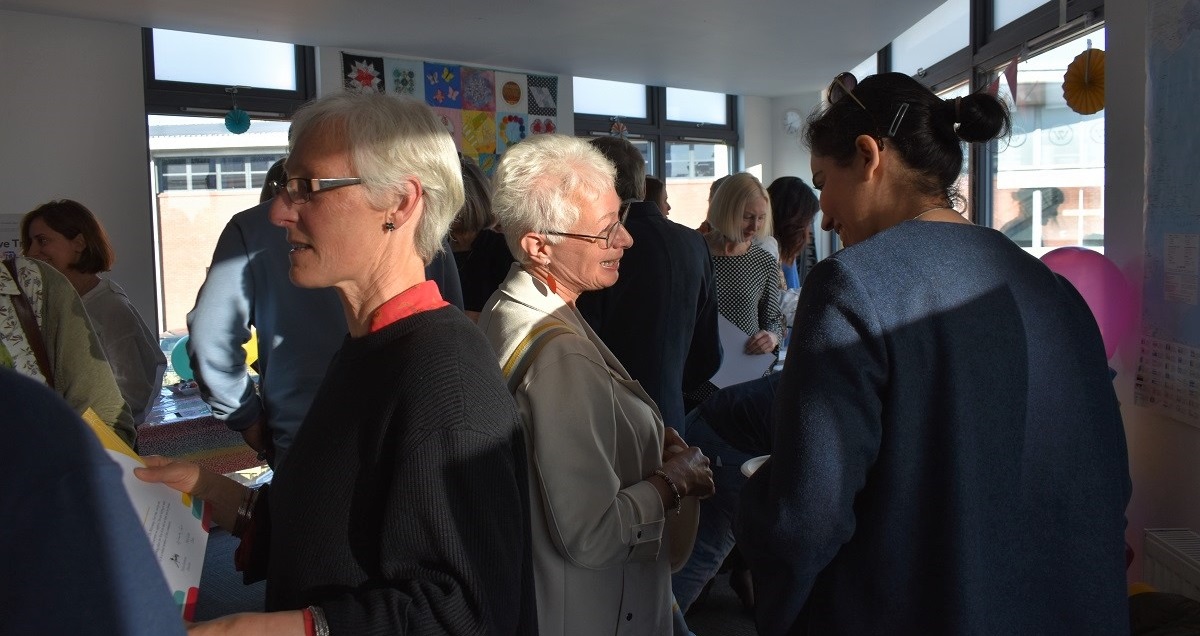
Addressing fuel poverty has never been more urgent, with some estimates stating that as many as 7.5 million UK households are fuel poor. Knowing where to find help to improve home energy efficiency can be difficult, but even more so for those who are unfamiliar with or reluctant to access public, private and third sector support services.
The Welcoming is an Edinburgh charity supporting newly arrived asylum seekers, refugees and migrants to settle in Scotland. Since 2015, the Ashden Award winner has done this through a range of climate-related initiatives, including clothes swaps, a community fridge and sustainable garden, and environment-themed English vocabulary lessons.
In 2022, with energy bills soaring – and with many migrants at higher risk of slipping into fuel poverty – the charity successfully won funding from the Energy Redress Scheme (a funding pot that redistributes money from rule-breaching energy companies that have breached rules) to set up a home energy saving advice service. This service will address the specific barriers faced by migrants in accessing support, such as language translation and unfamiliarity with UK public services.
As part of this, The Welcoming has hired two new members of staff: an Arabic-speaking refugee, and a Farsi-speaker who can engage with Afghan arrivals. Both will receive qualifications by taking part in the service.
Discover more about The Welcoming’s work or learn how to apply for funding from the Energy Redress Scheme. Local authorities could also look to replicate Portsmouth City Council’s initiatives, Switched On Portsmouth.
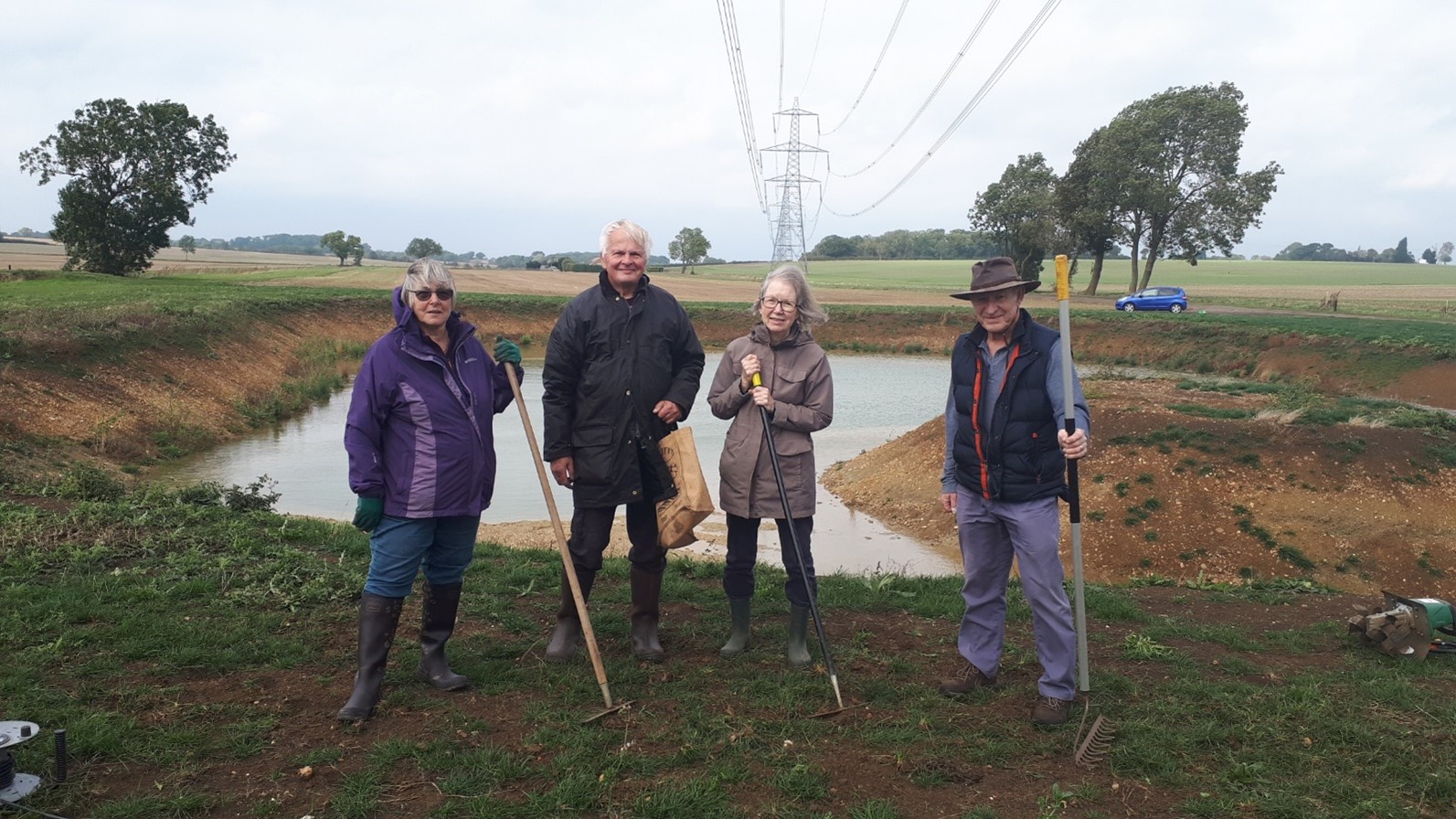
Over 5.2 million homes and properties in England alone are at risk of flooding. ‘Unprecedented’ flood events are occurring more regularly across the UK and risk is likely to increase in coming years, affecting rural and urban communities. One area already feeling the devastating impact of frequent floods is a cluster of villages in Cambridgeshire, most recently hit in 2020 when over 200 properties and 1100 residents were affected.
Since then, Alconbury Flood Group was formed and has taken the community’s flood resilience into its own hands. A force of nearly 100 volunteers to manage local waterways in a way that protects villages and farms from floods, improves biodiversity and sequesters carbon.
Alconbury Flood Group combines natural-based solutions and technology in its 85 square kilometre river catchment area. Its work includes:
- Annual watercourse maintenance during the winter months, reducing flood risk by clearing riverbanks and removing accumulated silt to improve river flow.
- Working with farmers to establish herbal leys – planting deep-rooted, species-rich grasses which retain more rainwater and carbon.
- Creating 40 new pond habitats to boost biodiversity and desynchronise floodwater.
- Using a remote sensing system for live data monitoring, enabling more precise flood warnings.
- Supporting rainwater gardens which combine surface water storage and planting.
Alconbury’s Flood Group’s success demonstrates that natural solutions, collaboration and social cohesion are the winning formula at the heart of community climate resilience.
Find out more
For more on protecting residents from extreme weather, council officers and councillors can read the LGA’s resilient communities briefing pack and explore North Northamptonshire Council’s Flood Toolkit. Or see how Hull City Council is working side by side with communities to design flood defences.
Access to nature brings physical, social and mental health benefits. But people of Black, Asian or minority ethnic backgrounds are twice as likely than white British people to live in England’s least green areas, therefore missing out on proven health benefits.
Widening access would not only improve community wellbeing, but in communities facing high unemployment, action could create 16,000 new jobs improving woodlands, peatlands and urban parks.
Green Light Trust is an innovative environmental charity that provides education and wellbeing programmes across Norfolk and Suffolk to some of the most disadvantaged and marginalised in society. The trust has supports more than 1000 people a year, mainly those living in areas experiencing deprivation and where people are more likely to experience mental health problems.
Their support takes place in woodland areas, using the environment to rebuild, reawaken and refocus people’s lives, with nature as the catalyst.
Participants have experienced a 28% drop in GP visits, demonstrating the power of ‘social prescribing’. The organisation is not an alternative to statutory services, but is integrated with them, enabling a truly joined up support system in the area.
Funded by partners such as councils, health services and education providers, Green Light Trust is a powerful example of how, by focusing on the most vulnerable first, communities can nurture the green skills of the future in a fair and just way.
Find out more
MyCommunity has produced a guide for council officers, community groups and residents who want to work collectively to manage and protect local green spaces for the benefit of all. Similarly, the LGA have produced a council guide to social prescribing.
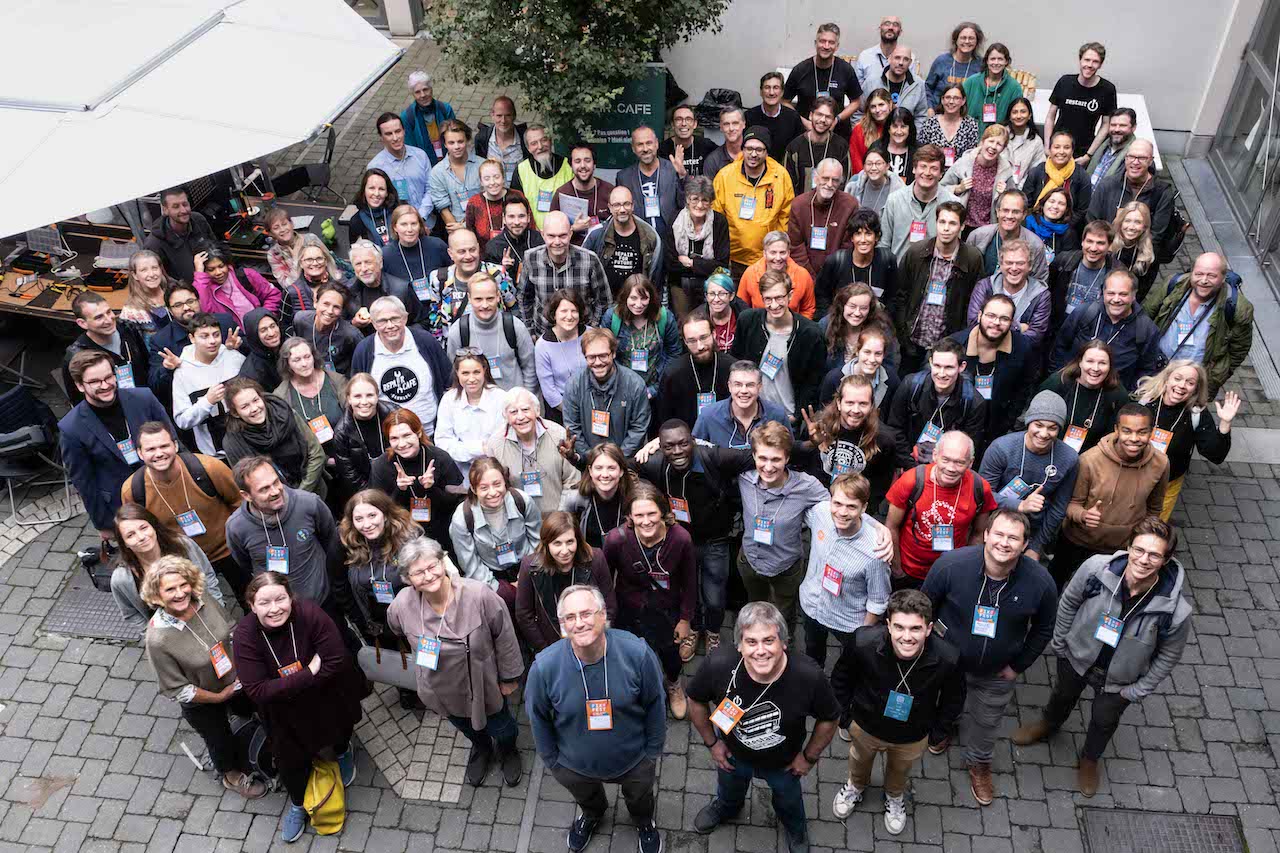
The UK is an e-waste nation, throwing away 23.9kg of electronics per person every year. Repairing saves emissions by cutting demand for newly manufactured items, and waste to landfill. Behavioural change around consumerism is a tough nut to crack, but at the same time there is a growing grassroots demand for reliable places to have household items repaired.
The Restart Project is a social enterprise addressing our relationship with electronic devices, from tablets to toasters, at a community level. The project is about more than fixing items – it changes mindsets and campaigns for longer-lasting products.
The Restart Project began by supporting communities in London to host repair parties, a similar concept to repair cafes: people can have their electronics fixed by knowledgeable volunteers. More recently, the organisation received funding from the National Lottery to go establish two pilot Fixing Factories in Brent and Camden High Street as public-facing, permanent spaces for fixing.
Community fixing may seem minimal in terms of impact, but to date the London Restart network alone has helped 6,947 people, prevented 7,575kg of waste, and saved 137,097 tonnes of carbon emission.
Lessons learned include that, involving owners in repair is crucial; items are valued more, anxiety is reduced, and the likelihood of future repairs is increased. Regularity is also key. One-off events are good, but regular events are better because providing a trusted service takes time.
Finally, it can be hard to find sustainable financial models for repair, because it is labour intensive. Yet the popularity of repair is soaring, so there is room for communities (and councils) to experiment with new and potentially revenue generating models in this area.
Find out more
The Restart Project has also created several free-to-use digital tools, including restarters.net (a platform for the repair community to share tips, log repair data and promote events), the London Repairs directory (listing more than 300 vetted repair businesses across London), and the Laptop Donation Directory (a UK-wide map of groups refurbishing devices to donate for digital access).
The climate movement and professional environment sector have a reputation for lack of diversity, despite people from ethnic minority backgrounds often being most at risk to climate impacts.
Community groups are best placed to translate local climate issues in a way that is accessible, not exclusive. The Centre for African Entrepreneurship (CAE) in Swansea, founded to provide routes out of poverty for ethnic minorities in Wales, is doing just that.
Its enterprise support scheme encourages ethnically owned businesses to consider sustainable practices as a way to secure grants and funding, and the centre’s food bank service partners with a local community supported agriculture scheme to supply seasonally grown fruit and vegetables.
Lack of accessible transport issues can be disenfranchising for minority ethnic communities. CAE’s comprehensive community transport project addresses the social barriers linked to transport in ways that also reduce carbon emissions. CAE offers weekly lift-share shopping trips, a ‘Walk & Talk’ isolation relief service, weekly bike rides to encourage a more diverse uptake of the local bike renting scheme, and bike maintenance training.
Find out more
Read the National Lottery’s top tips for inclusive community climate action. Consider how your local authority could support organisations like Action For Conservation and Black2Nature. Further examples of climate action that boosts social cohesion can be found in Ashden’s Climate Action Co-benefits Toolkit.
Case studies: councils and community groups working together
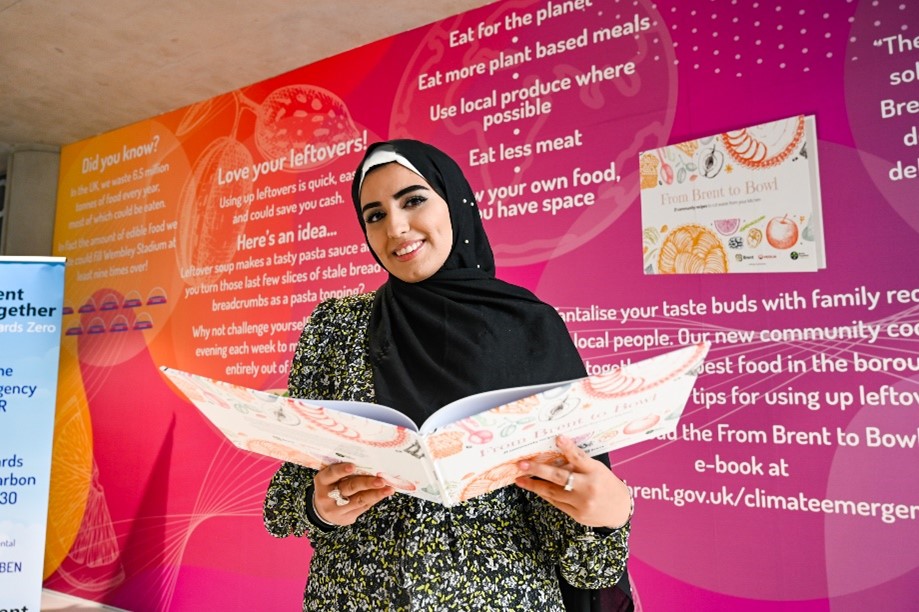
London Borough of Brent Council aims to become net-zero by 2030, but must do so in a way that tackles local inequality and engages diverse communities. In Brent, 82% of residents follow a faith, so improving the representation of faith voices and working with faith-inspired communities is essential to delivering an inclusive climate action plan.
The council set up a Brent Faith Climate Action Group to harness the influence of faith communities and bring them into the conversation on climate action. The group consists of faith leaders who are passionate about taking climate action, and working with their congregations and the wider community to reduce carbon emissions and show kindness and compassion to the planet.
The creation of the faith-inspired group has led to projects such the ‘From Brent to Bowl’ community cookbook, launched to promote the message of reducing food waste and to showcase recipes and stories of faith and cultural traditions from local residents.
Elsewhere, the group worked on a faith climate action plan that offers a template for places of worship to promote greener behaviours and ways of living. This plan gives suggested ideas and tips, but also recognises that each faith community starts from its own unique position and must tailor the plan to its theology, context and capacity.
The group also supported a ‘ photography exhibition that invited faith leaders to share their perspectives on the climate emergency – a production that is now visiting places of worship across Brent.
The council says it is committed to increase the representation of faith communities on this key issue, so that followers can feel represented and motivated to get involved. Reaching the council’s net-zero target can only be done when all communities are part of the conversation and action.
Find out more
Listen to Nadia Khan from Brent Council discuss how they are motivating faith communities to become involved in climate action as part of the council’s Green Neighbourhoods programme.
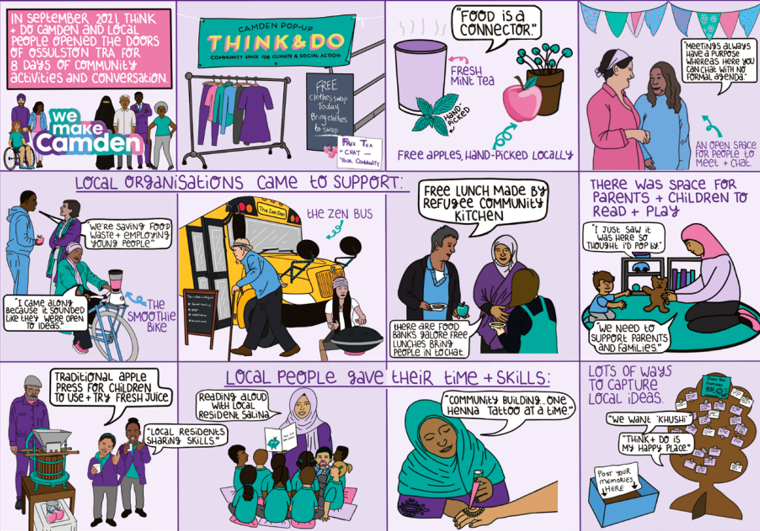
In a bid to create wider engagement on climate issues – and ensure the benefits of action reach every resident – Camden Council supports grassroots group Camden Think & Do to transform estates into hubs of climate action. Since 2021, Camden Think & Do has been active in underused halls and other spaces connected to local Tenants and Residents Associations. By meeting people where they are in the community, this work opens up conversations on areas such as food, waste and green spaces, through the innovative Sharing Space programme.
The council has provided officer time and pointed community groups to local funding pots, as well as supporting Camden Think & Do to gain access to spaces, with the support of council tenant participation officers.
As a result, communities that are hardly reached have been engaged on sustainability and gained more knowledge of council services. There’s evidence of this in the take up of the council’s community funding budget by off-shoot organisations that have developed organically from Sharing Spaces.
How can I find out more?
You can watch a discussion on how Camden Think & Do and Camden Council supported each other, and view other key resources on how the community group delivers community pop-ups, here.
Somerset is prone to climate impacts including flash flooding and drought. These challenges have had a big impact on local housing, businesses and agriculture over the past decade. The area’s local authorities and communities must become better equipped to adapt to climate dangers and protect local infrastructure.
In response, Somerset Wildlife Trust’s innovative project ‘Adapting the levels’ has driven a local collaboration between council, community groups and farmers. This has seen the co-creation of climate adaptation plans and promoted the use of nature-based solutions in local areas.
The trust held workshops and training sessions with parish, district and county councils to both bring them onboard and provide training in climate adaptation pathways. The trust also held community-focused events that informed residents about local climate projections, creating a safe space to process emotional responses and discuss ideas for adaptation.
This collaborative process has created the Adaptation Pathways Tool, a free toolkit that councils and communities can use to better understand the issue and build local resilience to climate change.
How can I find out more?
Read key reports from the Adapting the Levels engagement process. Elsewhere, Local Partnerships have published a 5-step toolkit for local authorities looking to enhance adaptation.
Northumberland County Council’s climate pledge is to reach net-zero carbon emissions by 2030. The council has identified partnership and engagement as a key strand that will make this possible. To create progress, the council must support and equip community partners with the knowledge and tools to achieve success.
The council has set up a community climate champions network, consisting of 27 different groups community groups across 45 different wards, that provides a space for sharing resources and ideas and has led to the creation of a Local Community Climate Action Plan.
Benefits for the council include the creation of a direct communication route with community groups, while the champions have used the network to gain training support from the council on key areas such as project management, as well as communications training for engagement events.
The council have also built better knowledge of local climate action and the barriers community groups face. This has been essential to the planning of future climate action projects in the county.
How can I find out more?
View the launch of Northumberland’s Community Climate Champions network here. Other examples of councils building partnerships to share knowledge include Norfolk County Council’s Empowering Communities Partnership.
Practical advice for councils
Work from key values
Councils and communities working together to design and deliver climate action projects is innovative, and may represent a departure in traditional governance from a local authority.
UCL’s Co-production Collective sets out how local authorities looking to build comprehensive projects with communities should embrace certain principles and values. These include:
- Understanding power dynamics – recognise the unequal power dynamics that may exist between council and community, and be willing to surrender power to others. Learn more with this free course on understanding power dynamics from the Open University.
- Flexibility and openness to new ideas – it is important to have a flexible approach at every stage of your project. By inviting communities into council projects, the intended process or outcomes may change a lot. Affording space for such changes will keep the collaborative process authentic, and also convince community groups that those in local government are genuine about incorporating local voices into decision-making.
- Be honest and transparent – councils should be upfront about the intentions behind their programmes, as well as the level of partner involvements and timelines.
- Be willing to invest the time – inviting others into local authority climate projects does not guarantee immediate impacts, but it is important to maintain collaborative partnerships for the long- term, in order to build and maintain trust with communities.
Five recommendations for local government
Invest in communities to increase their capacity to support the creation of long-term community resources that can support councils to achieve their climate action plans.
Specific and targeted investment in community groups can deliver outsized results. The means by which local authorities invest in their communities also represents an opportunity to engage broader groups on climate action.
- Follow Dundee City Council in creating a community participatory budgeting programme to empower communities to decide how and where resource is spent. This allows climate action funds to be distributed whilst maximising awareness and engagement of local sustainability initiatives within the community. So far, residents have decided how £385,000 of funding has been distributed to 12 local sustainability initiatives. The City of Edinburgh Council has also used participatory budgeting to give £140,000 of resource to community groups. Follow the Local Government Association’s advice to get started
- Learn from Northumberland County Council and develop skills training initiatives to support community groups on aspects such as project management and communication.
- Subsidise rent for disused high street shops, where local organisations can engage underrepresented groups in climate projects and messaging. Greener and Cleaner Bromley and The Edinburgh Remakery show how climate action co-benefits can be more evenly distributed in communities, if we meet people where they are.
- Provide physical resources to enable organisations to meet communities in trusted spaces like tenant’s association halls or community centres, to foster deeper engagement. Support direct engagement tools, such as flyer and poster templates and translation services.
- Follow Stoke City Council in carrying out community asset transfers of under-used spaces, helping local organisations deliver social change.
- Mirror West Berkshire and Blaenau Gwent’s use of climate bonds to raise finance for community climate projects.
Be flexible with procurement, and involve community initiatives as paid partners in programme delivery
Local organisations are well-placed to deliver council programmes within community spaces, but opportunities for such groups to collaborate with councils as paid partners can be rare. Leveraging grassroots partners helps deliver programmes that are more agreeable to people whilst keeping economic opportunities within local communities and maximising the social value created by a local authority.
- Birmingham City Council have brought local mosque the Bahu Trust onboard as paid partners in a whole street retrofit programme, leading on tenant engagement.
- Fife Council procured Greener Kirkcaldy to deliver community-based energy advice, enabling over 2,000 visits per year that support people on limited budgets whilst reducing carbon emissions.
- East Lothian Council’s sustainable procurement policy enables both the council and local businesses to unlock community benefits through purchasing power – with community engagement one of five key outcomes at the heart of the policy.
- Greater Manchester-based group Procure Plus work with communities on green skills employment, playing a key role for local government in plugging skills shortages within council programmes whilst maximising the social value created by local councils.
- Support and upskill local community groups to ‘get contract ready’, by working with trainers such as the School for Social Entrepreneurs, who educate grassroots organisations on navigating government procurement.
Empower faith-inspired groups to engage underrepresented voices on climate action
Faith plays an important role in many communities, though local authority plans rarely involve faith-perspectives. Working with faith inspired groups is an excellent way for councils to make their sustainability measures accessible to broader communities.
- Explore the signing of a faith covenant that incorporates the role of sustainability, as Birmingham City Council have done, and invite faith leaders to participate in community engagement discussions that include climate action. Faith Action offer support on how you can make this happen in your area.
- Create open inter-faith forums, as Brent Council and Surrey County Council have done, to allow champions and representatives of diverse communities to support and shape council services.
- Collaborate with faith groups to adapt council communications on climate change to ensure they are transferable to diverse groups, learning from key resources such as Bahu Trust’s ‘A Muslim’s guide to climate change’
- Build on relationships with faith-inspired groups and councils that may exist within other council departments, such as health or crime prevention.
Create community networks to foster learning and collaboration
By bringing together community champions local groups will able to share learning and best-practice, creating stronger social infrastructure within communities that can better support the council’s implementation of climate action plans.
- Consider building a schools network to leverage collaboration, as London Borough of Southwark Council has done with the Southwark Climate Action Network, empowering schools to work together and with the council to tackle the climate emergency. 33 local schools have been engaged and supported, in areas such as feasibility studies for solar panels and collaboration with other schools and eco-education organisations.
- South Warwickshire District Council has worked with public participation charity Involve to create a rural climate action network consisting of councillors, council officers and members of the community involved in climate action.
- Reading Climate Action Network was launched by Reading County Council. The network is administered by a full-time paid employee, in the role of Climate Change Partnership Co-ordinator.
- If you are just getting started in this area, follow Preston City Council’s or learn from the Centre for Alternative Technology’s Innovation Lab that sets out methods for approaching and engaging communities to drive collaborative thinking.
Improve council transparency to encourage collaboration
With more clarity on how the council operates, community groups will be better able to engage and build relationships with their local authority. This is an important first step towards effective and inclusive collaboration.
- Steer civil society through different council departments and clearly demonstrate the roles and opportunities that each area within local authority play and provide for communities
- Host council & community group days to build new partnerships and make the local authority more approachable and accessible.
- Employ a climate change stakeholder engagement officer to provide a gateway into the council for climate action groups, helping communities navigate different departments.
- Allow local organisations to share news and content through council communication channels, such as social media and newsletters.
Recommendations for national government
Communities and councils are acting on climate change – but need central government support.
Empower local authorities with more resources and responsibilities
The government’s Net-Zero review calls for central government to lead, but empower people and places to deliver. Local authorities must be supported to become the natural interface with community groups. To realise this, government should transfer greater funding and responsibility to local authorities through new devolution deals. These would allow local governments to better tackle the climate crisis through more comprehensive programmes connected to areas such as transport, economic development and planning
Set up long term funding for climate action community groups
The cost-of-living crisis and rising inflation mean that grassroot groups’ budgets are stretched more than ever. The UK government can mirror the success of Scotland’s Climate Challenge Fund, that disseminated resource to organisations, but also offered mentorship and training, as well as support related to monitoring, learning and evaluation.
Develop and fund a national network to share best practice of climate engagement across civil society
With diverse community groups across the UK already tackling the climate crisis, pioneering work should be understood and shared as widely as possible. Central government should fund the creation and delivery of a national network for best practice in climate engagement, with insights shared across civil society.
Launch a public engagement strategy for behaviour change that is underpinned by co-benefits and highlights the role of community groups
The government demonstrated that public engagement strategies can be implemented to good effect – examples include the light-touch energy savings campaign of winter 2022, and public health messaging during the coronavirus pandemic.
Central government should now launch a public engagement strategy for behaviour change across the climate action spectrum, clearly outlining how the co-benefits of climate action – such as better health and new jobs – can be achieved. Community voices should be a key pillar of this strategy and be given a key role in designing and delivering the strategy. This will ensure marginalised groups, who often do not feel the benefits of climate action, can be empowered to do so.
Ashden brings councils and community groups together
The practical examples, advice, and local and national policy recommendations in this briefing draw on Ashden’s deep experience of supporting local authorities and community groups.
Our Green Communities Network has brought over 80 climate and social action groups together to share best practice on community engagement on climate action.
We also facilitate local government networks in London, North of Tyne and South East England, as well as a City Regions Network. These unlock opportunities, ideas and suggestions for collaboration. Find our latest insights and resources via our Learning Out Loud tool.
Tools, resources and networks for councils

News, resources and events for local authorities
Our towns and cities bulletin helps you deliver high-impact climate action. Discover useful tools and opportunities, whatever your council’s size and budget.